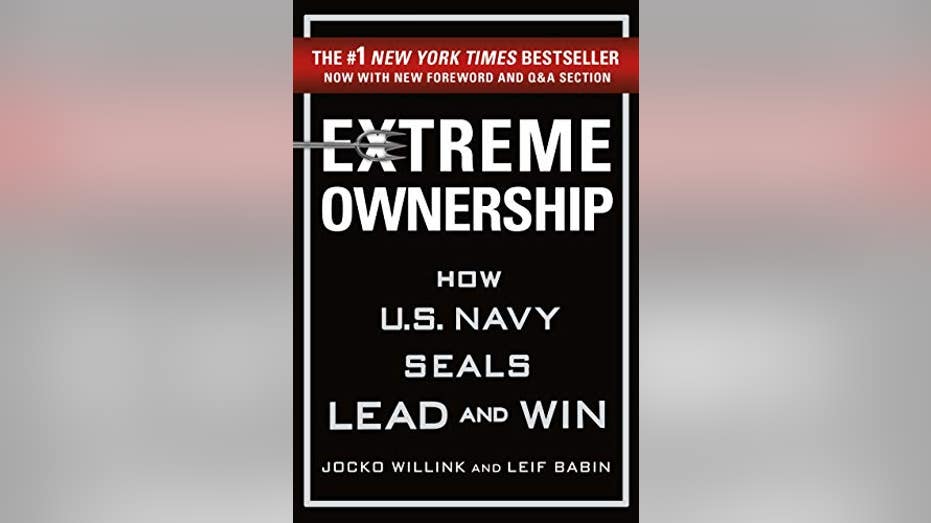How to deal with a micromanaging boss -- advice from leadership expert and former Navy SEAL
Micromanagement is aggravating, frustrating, prevents swift execution and impacts efficiency
How to deal with the micromanaging boss. One of the chief complaints we hear at Echelon Front, through our leadership education, training and consulting work with our clients, regardless of company size, industry, or level of leader, is about the micromanaging boss.
Micromanagement is aggravating, frustrating, prevents swift execution and impacts efficiency. We hear these complaints from leaders in finance, energy, real estate, healthcare, construction, insurance, first responder and military units, manufacturing, education, and non-profit organizations. We hear them from individual contributors, frontline leaders, mid-level managers, and senior executives. Most of the complaints sound like this: "I don’t have time for all these questions and scrutiny. The boss just needs to trust me, get out of my way and let me do my job."
HOW ELON MUSK’S SOFTWARE FOCUS HELPED TESLA NAVIGATE CHIP SHORTAGE
Recently, Echelon Front launched a leadership assessment survey that was sent to more than 3,000 leaders across a broad spectrum of industries in order to test their knowledge of what we call "Extreme Ownership." Ninety-seven percent missed at least one question or more.

Leif Babin is a former Navy SEAL officer and President/Co-founder of Echelon Front, a premier leadership training and education firm. (Courtesy Leif Babin)
Overwhelmingly, the most common question missed was about the micromanaging boss. Of the over 3,000 leaders surveyed, more than 800 of those leaders blamed the boss for being a micromanager.
The question that so many leaders struggled to answer correctly was this:
WHEN YOU ARE FEELING MICROMANAGED BY YOUR BOSS, THE PRIMARY REASON IS LIKELY:
a. The boss wants credit for the work you are doing
b. You haven’t pushed enough information and updates to your boss
c. The boss doesn’t trust you to get the job done
d. You simply have a difficult boss and you should endure as best you can
Of the 800 leaders who missed this question, most answered:
a. The boss wants credit for the work you are doing
Interestingly, a large number of the 3,000 leaders surveyed were people who have read our bestselling book, "Extreme Ownership: How U.S. Navy SEALs Lead and Win," and are believers and practitioners of this crucial concept.

Extreme Ownership means there are no excuses, there is no one else to blame; you must own everything in your world, everything that impacts your mission. So, the results from our survey might have been surprising, if we didn’t already hear this complaint so often through our leadership training and consulting work with Echelon Front.
So, why are so many of these leaders blaming the boss? The answer: Extreme Ownership is hard.
GET FOX BUSINESS ON THE GO BY CLICKING HERE
It’s not a difficult concept to understand. It’s not some complex theory learned in a classroom. Extreme Ownership is simple, straight forward and practical. But it’s extremely difficult to apply—especially where it counts the most, to yourself in real time, when the frustrations, friction points, and stresses are real.
In the multiple-choice answers to the leadership assessment above, you will notice that three of the four answers point toward the boss:
a. The boss wants credit
c. The boss doesn’t trust you
d. You simply have a difficult boss.
One might could make a case for "c. the boss doesn’t trust you," but that is still putting the blame on the boss. If there is a lack a trust, it stems from the correct answer, which is the most likely scenario:
b. You haven’t pushed enough information and updates to your boss.
You might be frustrated with your micromanaging boss. But don’t blame the boss. Instead, blame yourself.
It is not on the boss to give you trust. It’s on you to earn the boss’s trust. Blaming the boss is the opposite of Extreme Ownership. If all blame lies with your micromanaging boss, you can’t control the boss, so that leaves you in a hopeless situation—a perpetual state of micromanagement where you have no ability to fix the problem.
CLICK HERE TO READ MORE ON FOX BUSINESS
Your only recourse then is to suffer through it and endure. But if you take Extreme Ownership of the situation, you will recognize that the reason the boss micromanages you (has questions, scrutinizes your plans, and doesn’t trust you to get the job done) is all based upon your actions. And since you control your actions, YOU can make the necessary adjustments to push more information and updates to the boss, perform better and build trust, which will greatly reduce or even eliminate the micromanagement you are experiencing. Therefore, you can solve the problem.
Through a decade at Echelon Front, we’ve witnessed hundreds of case studies of leaders solving their micromanagement frustrations in this way, proving and reproving the point. Micromanagement, like every other problem in business or in life, is a leadership problem. Extreme Ownership is the solution.
Leif Babin is a former Navy SEAL officer, co-author of the New York Times best-sellers, "Extreme Ownership: How U.S. Navy SEALs Lead and Win" and "The Dichotomy of Leadership." He is President/Co-founder of Echelon Front, a premier leadership training and education firm.





















